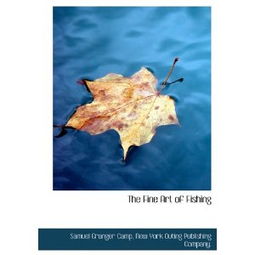Introduction: Fishing is an ancient pastime that has been cherished by people across the globe for centuries. Whether you are a seasoned angler or a beginner, understanding water bodies and mastering the necessary techniques are crucial for a successful fishing experience. In this article, we will delve into the key aspects of identifying suitable water bodies and explore essential fishing techniques to help you become a skilled angler.
Section 1: Identifying Suitable Water Bodies 1.1 Types of Water Bodies: Water bodies can vary greatly in size, shape, and characteristics. Some common types include rivers, lakes, ponds, streams, and oceans. Each type of water body offers unique fishing opportunities and challenges. Understanding the specific characteristics of each water body can help you make informed decisions when selecting your fishing spot.
2 River Fishing: Rivers provide a dynamic environment for fishing, with flowing water and diverse habitats. To identify suitable river fishing spots, consider the following factors:
- Current: Look for areas with slower currents, such as pools or bends, where fish tend to congregate.
- Structure: Identify natural or artificial structures like rocks, logs, or weed beds that offer shelter and protection for fish.
- Depth: Fish often stay in deeper areas during hot weather, so consider fishing deeper sections during such conditions.
3 Lake Fishing: Lakes offer vast open spaces and various habitats, making them ideal for fishing. When selecting a lake, consider the following factors:
- Depth: Look for areas with deeper water, as fish often migrate to deeper sections during certain seasons.
- Vegetation: Weeds, lily pads, and other vegetation provide excellent cover for fish, making them prime spots for fishing.
- Shoreline: Pay attention to the shoreline, as it can indicate potential fishing spots, such as points, drop-offs, or rocky areas.
4 Pond Fishing: Ponds are smaller water bodies that are often well-suited for beginners. When fishing in a pond, consider the following factors:

- Size: Smaller ponds are easier to fish due to their limited area, allowing you to cover more ground.
- Vegetation: Similar to lakes, ponds with vegetation offer good fishing opportunities.
- Depth: Ponds are generally not as deep as lakes, so focus on the shallow areas near the shore.
Section 2: Essential Fishing Techniques 2.1 Choosing the Right Gear: Selecting the appropriate fishing gear is crucial for a successful fishing experience. Consider the following factors when choosing your equipment:
- Rod and Reel: Match the rod and reel to the type of fish you are targeting and the water body you are fishing.
- Line: Choose the appropriate line strength and type based on the fish you are targeting and the water conditions.
- Lures and Baits: Use lures or baits that mimic the natural prey of the fish you are targeting.
2 Casting Techniques: Casting is a fundamental skill in fishing. Here are some casting techniques to help you improve your accuracy and distance:
- Overhand Cast: This is the most common casting technique and is suitable for various situations.
- Sidearm Cast: Use this technique when you need to cast across or around obstacles.
- Roll Cast: This technique is useful for casting into tight spaces or when the wind is blowing.
3 Baiting and Lure Presentation: The way you present your bait or lure can significantly impact your fishing success. Consider the following tips:
- Natural Presentation: Use a natural presentation when fishing with live bait or natural-looking lures.
- Vibrating Lures: Vibrating lures can attract fish by mimicking injured prey or struggling prey.
- Slow and Steady: Sometimes, the most effective technique is to present your bait or lure slowly and steadily.
4 Reading the Water: Understanding the behavior of fish in different water conditions is crucial for successful fishing. Pay attention to the following factors:
- Water Temperature: Fish behavior can change significantly with temperature fluctuations. Adjust your tactics accordingly.
- Weather Conditions: Wind, rain, and overcast conditions can affect fish behavior, so be prepared to adapt your techniques.
- Water Clarity: Fish may be more cautious in clearer water, so consider using lighter tackle and natural-looking lures.
Conclusion: Fishing is a rewarding activity that requires patience, practice, and knowledge of water bodies and techniques. By understanding the characteristics of different water bodies and mastering essential fishing techniques, you can enhance your chances of catching fish and enjoy a memorable fishing experience. Remember to always respect the environment and practice ethical fishing to ensure the sustainability of our water bodies for future generations. Happy fishing!












